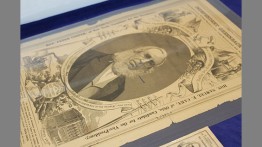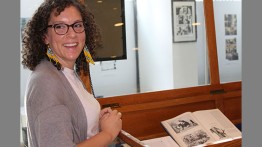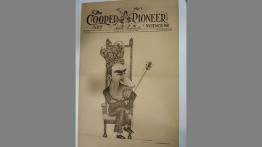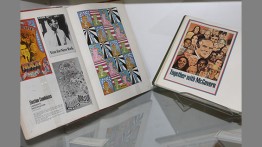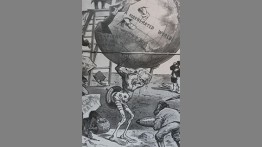Mudslinging of Election Years Past Documented in Library Show
POSTED ON: October 27, 2016
From now until November 8, the library offers some historical insight on this contentious election season with a new exhibition highlighting some of the library’s rich holdings related to the ever-colorful world of politicking. Curated by Librarian and Archives Assistant Katie Blumenkrantz, the exhibition includes magazines, posters, editorial cartoons and books documenting political luminaries and lowlights—from Ulysses S. Grant to the ever-glamorous John Lindsay, New York’s mayor from 1966-73, to an enthroned Richard Nixon as drawn by a then-junior, George Angellini A’74.
Speaking of an exhibition case that features ephemera from elections during the 1970s, Ms. Blumenkrantz says, “I dove into our collection looking for interesting items relating to elections, be it political cartoons, posters or ephemera. I think the time surrounding Nixon's elections was such a hotbed. People were very anxious about what was going on and one way that anxiety displayed itself was in imagery.”
The Cooper collection includes ephemera from Peter Cooper’s 1876 presidential campaign. As the first candidate of the Greenback Party, Cooper represented the national party that was founded to combat post-Civil War inflation as well as the growing number of corporate monopolies. Its name came from the money issued by the federal government during the Civil War, a currency not backed by a gold standard.
Ms. Blumenkrantz notes that the Cooper Union Library and Archive has a wealth of political material. "There are so many items in our collection that I unfortunately did not pull because they did not relate to elections—political cartoons that ran in Puck [a 19th century humor magazine] about Peter Cooper, propaganda posters from the Soviet Union....For people interested in illustration or political art, we have a lot to offer.”

